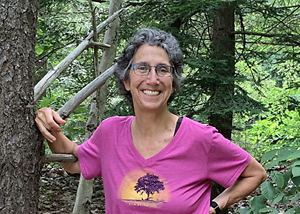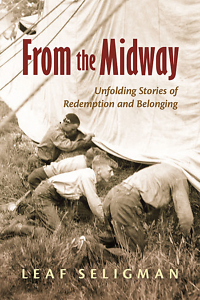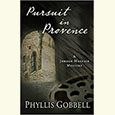Housed in a Temple of Difference
Leaf Seligman’s vivid character studies reveal the quiet desperation of carnival performers
In the 13 linked stories of From the Midway, Leaf Seligman creates a world apart: the tragic, broken-down world of a second-rate traveling carnival in early 20th-century America. Beasleys’ Traveling Amusements out of Memphis, Tennessee, features the usual rides and attractions, plus scantily clad dancing girls and an array of human and animal “oddities,” the term its founder prefers over “freaks.”
 Secure in their belief that “nothing improved the customers’ disposition better than viewing creatures more tortured or ugly than themselves,” the elder Beasley and his sons travel the back roads in search of their next act, explaining “how God had a reason for making the unfortunate souls whose bodies kept them housed in a temple of difference. The lame, the deformed, the unbearably fat. Even those born healthy but later rendered unrecognizable through some hideous accident. They all had a purpose.”
Secure in their belief that “nothing improved the customers’ disposition better than viewing creatures more tortured or ugly than themselves,” the elder Beasley and his sons travel the back roads in search of their next act, explaining “how God had a reason for making the unfortunate souls whose bodies kept them housed in a temple of difference. The lame, the deformed, the unbearably fat. Even those born healthy but later rendered unrecognizable through some hideous accident. They all had a purpose.”
The Beasleys’ roster includes the obligatory giant, fat lady, little person, and bearded lady, along with more unusual acts. With few exceptions, the story of each performer’s condition and introduction to the carnival life is excruciating — many having been cheerfully surrendered or even sold by their own families. Seligman creates vivid character studies that linger long after the story ends.
Particularly heartbreaking is a 6-year-old boy with flipper-like appendages instead of hands and feet. Seligman writes, “Immersed in the water, strapped in his seat, Flipper Boy watched the eyes of the people lined up to see him. His second week in the tank, he watched the face of a boy his age crinkle, the eyes narrowing, the nose flattening, the mouth turning sour as the wail climbed the back of the boy’s throat. The cries pierced the tent like giant scissors, leaving a hole wide enough for both boys to fall through. Flipper looked at the boy’s mother, hoping she would comfort him or carry him out, but she just stood there saying, ‘Don’t worry, sugar, it won’t happen to you.’”
 Seligman, a Nashville native, also shines her piercing light on others whose livelihoods depend on the traveling show. Cheever, one of the black laborers working behind the scenes to keep the carnival running, remembers his escape from the sharecropping life of his family to the alluring world of show business. More than a decade later, “his days [are] no shorter than a field hand’s, his back no straighter than if he’d been walking behind his daddy’s plow.” Likewise, Lisabelle is a dancer who flees an abusive father to join the carnival, only to be groped nightly by strangers for tips. Seligman writes, “Her first night performing, Lisabelle could scarcely believe what came out of the customers’ mouths. … Even her father had not spoken as crudely as some of them. The words left welts.”
Seligman, a Nashville native, also shines her piercing light on others whose livelihoods depend on the traveling show. Cheever, one of the black laborers working behind the scenes to keep the carnival running, remembers his escape from the sharecropping life of his family to the alluring world of show business. More than a decade later, “his days [are] no shorter than a field hand’s, his back no straighter than if he’d been walking behind his daddy’s plow.” Likewise, Lisabelle is a dancer who flees an abusive father to join the carnival, only to be groped nightly by strangers for tips. Seligman writes, “Her first night performing, Lisabelle could scarcely believe what came out of the customers’ mouths. … Even her father had not spoken as crudely as some of them. The words left welts.”
All of the characters are, in some sense, treated as objects and subject to exploitation, abuse, homesickness, boredom, and despair. Lisabelle’s loneliness and curiosity draw her to the oddities, but Cheever’s anger about his own second-class status sets him apart. In a dispute with the bearded lady, he rages against the racism of the carnival’s white patrons even as he expresses disdain for her and the other sideshow performers: “She shut the door before he said, ‘I ain’t no freak.’ She knew it was coming. It was the rung of the ladder every normal person climbed onto, thinking it kept them high, dry, and out of harm.”
Beyond the greedy owners, heartless families, and gawking crowds are other obstacles, including the isolation of constant travel and the relentless loneliness of those for whom a “normal” life is forever out of reach. From the Midway is a beautifully written and deeply affecting meditation on the barriers — both physical and psychological — that separate us from one another and from our own deepest longings.

Tina Chambers has worked as a technical editor at an engineering firm and as an editorial assistant at Peachtree Publishers, where she worked on books by Erskine Caldwell, Will Campbell, and Ferrol Sams, to name a few. She lives in Chattanooga.


